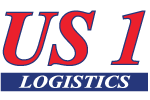“You can’t serve everyone—and you shouldn’t try. Here’s how to find your freight-fit.”
If you’re a freight broker agent, drayage agent, or intermodal agent trying to grow your book of business, one of the biggest mistakes you can make is chasing every shipper under the sun. It’s tempting, right? More leads should mean more loads, more conversations, more chances to close.
But here’s the reality check: spreading yourself too thin is a recipe for stress and stagnation. When you’re chasing every type of freight across every region, you lose your edge. You don’t become known for anything, and worse—your prospects sense it.
Instead of building trust with targeted insight, you end up offering vague promises that sound just like everyone else. You’re quoting reefer one minute, then scrambling to find a flatbed carrier the next, all while losing follow-up time with high-potential prospects.
What happens next? You burn out trying to please everyone—and your revenue takes a hit because you’re not building momentum in any single area.
Focus builds authority. When you niche down—whether by region, freight type, or customer industry—you gain clarity, speed, and confidence. And shippers notice. They’re far more likely to trust someone who specializes in their lane or mode than someone who’s “figuring it out as they go.”
So before you blast another cold call list or fire off a mass email to 100 shippers, ask yourself: am I building a reputation—or just chasing the next load?
Specialization doesn’t limit your growth—it unlocks it.
🎯 Why Niche Focus Wins
Top truck freight brokers and freight agent brokers know this secret: the riches are in the niches. It’s not just a catchy phrase—it’s the strategy that separates high-performing agents from those stuck spinning their wheels.
When you narrow your focus to specific freight types—like reefer, flatbed, LTL, or hotshot—you stop being a generalist and start becoming a specialist. That shift is powerful. Why? Because specialists solve specific problems—and people pay more for that kind of precision.
Let’s break it down:
-
🚛 Reefer brokers learn the ins and outs of temperature control, seasonality, and spoilage risk. Shippers hauling produce, meat, or pharmaceuticals want someone who understands those details without explanation.
-
🛠️ Flatbed agents dive deep into securement regulations, oversized permits, and equipment matching. You become the go-to expert for shippers in construction, steel, or heavy machinery.
-
📦 LTL brokers navigate freight classing, terminal schedules, and consolidation strategy like pros. That kind of knowledge gives smaller B2B shippers confidence and keeps bigger ones loyal.
-
⚡ Hotshot agents know urgency. They thrive on short notice and tight turnarounds—ideal for oilfield operations, emergency parts, or expedited retail.
When you speak the language of a specific mode, lane, or freight type, you immediately stand out. You’re not just another generic “transportation solutions provider”—you’re the one who gets it. And in a world where every inbox is full and every voicemail box is ignored, that kind of credibility gets callbacks.
Your niche becomes your value proposition. It tells shippers, “I understand your business, your challenges, and your goals—and I’ve helped others just like you.” That’s how relationships start. That’s how trust grows. And that’s how deals get done—faster, smoother, and with better margins.
🔍 Start With Market Research
Not sure where to niche down? Here’s how freight agents can do smarter market research:
-
Analyze Your Current Wins: Where are you already moving freight successfully? Which shippers stick around? Patterns often point to your natural niche.
-
Check Regional Demand: Use freight boards and load data tools to spot demand trends in your region. If reefer loads dominate your area, that’s a clue.
-
Follow the Money: Look at freight types with better margins or lower competition. Flatbed and specialized hauls often offer strong returns for agents who learn the ropes.
💡 Niche Ideas for Freight Broker Agents
-
Reefer freight for agents near agricultural zones
-
Flatbed for construction-heavy regions
-
Intermodal freight for agents near rail hubs or ports
-
LTL for agents targeting manufacturers and distributors
-
Drayage for those working close to ports or inland container yards
🚫 The Danger of Being a Generalist
Freight agent brokers who try to cover too much territory often face:
-
Long sales cycles with low conversions
-
Weak carrier relationships
-
Missed follow-ups due to scattered focus
The antidote? Go deep, not wide.
✅ Final Tip: Align Your Niche With Your Strengths
Match Your Strengths to the Freight
Choosing a niche isn’t just about what’s popular—it’s about what fits you. Your workflow, your personality, and even your customer service style should align with the freight type you pursue.
🚚 If you’re detail-oriented and thrive on communication, then LTL (Less-Than-Truckload) might be your lane. LTL requires constant coordination, carrier follow-ups, and proactive updates to shippers juggling multiple delivery points. It’s ideal for agents who like being hands-on and can juggle multiple touchpoints without breaking a sweat.
⚡ If you move fast and think faster, then hotshot freight could be your match. Hotshot is all about tight timelines and specialized delivery. It’s high-pressure, high-speed, and perfect for agents who enjoy problem-solving under the clock.
❄️ Love managing temperature-sensitive freight with razor-sharp precision? Then reefer work may be your sweet spot. Whether it’s produce, pharmaceuticals, or frozen goods, reefer requires agents who can stay cool under pressure—literally and figuratively.
🛠️ More into logistics strategy and equipment coordination? Consider flatbed freight. These loads require deep knowledge of securement, routes, and permitting. If you’re methodical and love a challenge, flatbed could be a great fit.
Bottom line: the most successful freight agents don’t chase every load—they lean into what they do best. Aligning your strengths with your freight type builds credibility, efficiency, and long-term client loyalty. It’s not just good business—it’s smart business.



Recent Comments